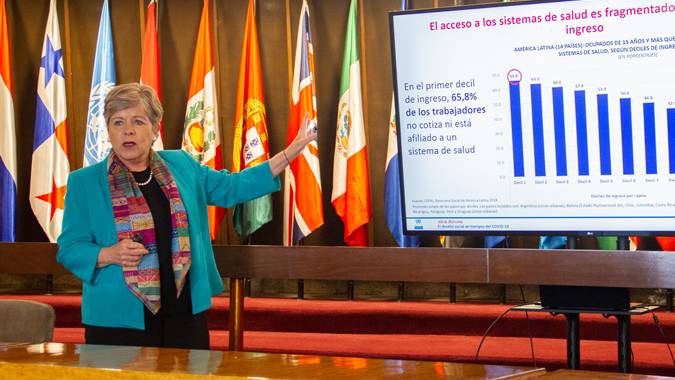The ECLAC organization presented a new report on the social challenges of the crisis stemming from COVID-19. In a context of low growth, a significant increase in poverty, extreme poverty and inequality is foreseen in Latin America and the Caribbean.
To cope with the socioeconomic effects of the crisis caused by the coronavirus (COVID-19) disease, the Economic Commission for Latin America and the Caribbean (ECLAC) proposes that governments ensure immediate temporary cash transfers to meet basic needs and sustain household consumption, which will be crucial for achieving a solid and relatively quick reactivation. In addition, in the long term, the organization reiterates that these transfers should be made permanent, extending beyond people in situations of poverty and reaching the broad social strata of the population that are very vulnerable to becoming poor, which would enable moving towards a universal basic income to guarantee the basic right to survival, according to a new report unveiled today by the Commission’s Executive Secretary, Alicia Bárcena.
The senior United Nations official presented this Tuesday, May 12, the Special Report COVID-19 No. 3, entitled ‘The social challenge in times of COVID-19’, which gives an estimate of the social impact and related challenges that the current crisis is seen having for Latin American and Caribbean countries in the short, medium and long term. At a virtual press conference transmitted live from Santiago, Chile, Bárcena also revealed the details of ECLAC’s proposal for a basic emergency income (BEI) that should be implemented immediately, with a view to keeping it in place over time, depending on each country’s situation. This is especially relevant because overcoming the pandemic will take time and societies must coexist with the coronavirus, which will hamper the reactivation of the economy and production.
For the full article please go to: https://www.cepal.org/en/eclac-notes/104.




















